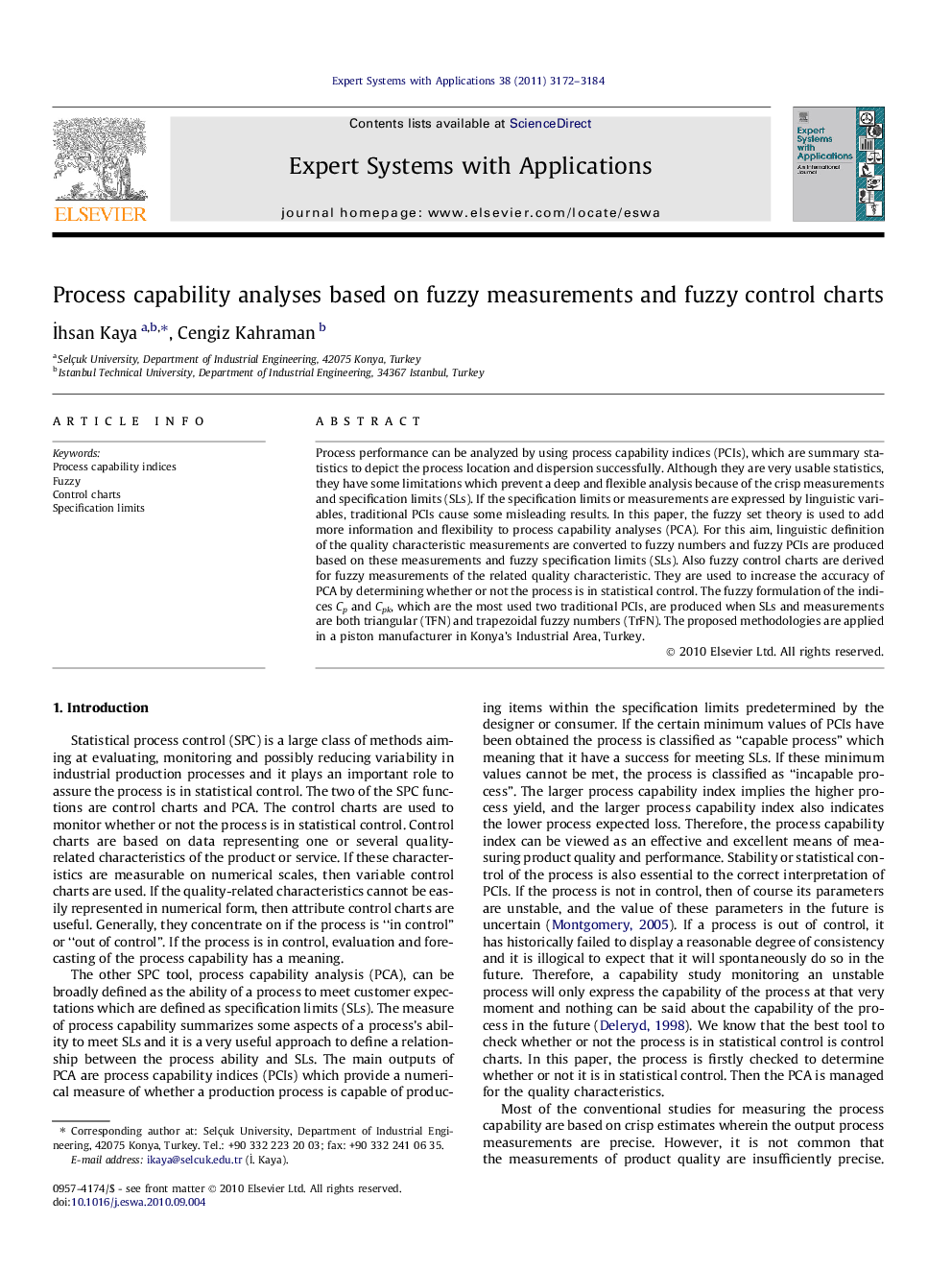| Article ID | Journal | Published Year | Pages | File Type |
|---|---|---|---|---|
| 385971 | Expert Systems with Applications | 2011 | 13 Pages |
Process performance can be analyzed by using process capability indices (PCIs), which are summary statistics to depict the process location and dispersion successfully. Although they are very usable statistics, they have some limitations which prevent a deep and flexible analysis because of the crisp measurements and specification limits (SLs). If the specification limits or measurements are expressed by linguistic variables, traditional PCIs cause some misleading results. In this paper, the fuzzy set theory is used to add more information and flexibility to process capability analyses (PCA). For this aim, linguistic definition of the quality characteristic measurements are converted to fuzzy numbers and fuzzy PCIs are produced based on these measurements and fuzzy specification limits (SLs). Also fuzzy control charts are derived for fuzzy measurements of the related quality characteristic. They are used to increase the accuracy of PCA by determining whether or not the process is in statistical control. The fuzzy formulation of the indices Cp and Cpk, which are the most used two traditional PCIs, are produced when SLs and measurements are both triangular (TFN) and trapezoidal fuzzy numbers (TrFN). The proposed methodologies are applied in a piston manufacturer in Konya’s Industrial Area, Turkey.
Research highlights► Process capability analysis produces some summary statistics to summarize process performance. ► Process capability indices are widely used in manufacturing industries to measure the ability of process. ► Fuzzy sets bring an advantage to the flexible definition and evaluation of process capability indices.
